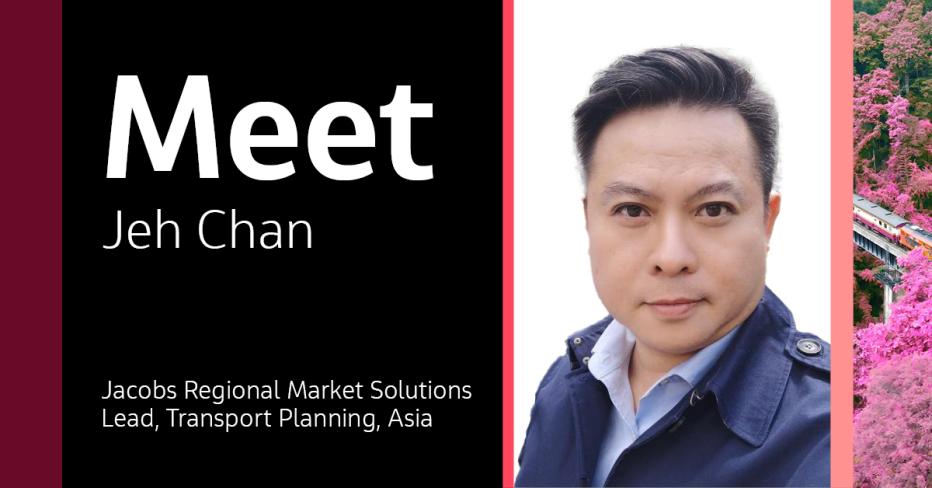
Can you tell us how the work you do is helping deliver Jacobs’ strategy?
As the regional market solutions lead for mobility in Asia, I am committed to driving differentiated market growth for transport by focusing on innovation, connectivity and collaboration across Jacobs and driving exceptional value for our clients through innovation and strategic partnerships.
What excites you the most about your role?
Asia is such a diverse and dynamic region with unique cultures, infrastructure, economic and transport systems across its many cities and communities. I work with clients across the region to develop and implement strategies that enhance transport systems, networks and infrastructure that meet the needs of the local communities. Achieving this requires a deep understanding and appreciation of the local community as well as the commitment to developing solutions that are practical, effective and culturally sensitive to the unique challenges facing each community. This makes it a fascinating and complex region to work in, as each new project presents its own set of challenges and opportunities. Ultimately, I find the opportunity to contribute to improving the livelihood of millions of people across the region and witnessing the positive impact of our work on the local communities incredibly fulfilling.
What projects are you working on right now?
I am excited to be working on an autonomous vehicle (AV) transport modeling to help accelerate the deployment of AV services, shared mobility and green transport as a holistic mobility solution for first and last-mile connectivity in Singapore. The deployment of AV services is transforming the industry as well as the way people move, work, and live and we’re committed to helping our clients navigate the complexities involved to realize the best outcomes for our clients, city stakeholders and the local community.
I am also working on a multimodal access plan and traffic dispersal analysis for a new rail station development in Malaysia. The objective of the project is to create a sustainable, efficient and user-friendly major transport interchange to facilitate land cross-border movements. This relies on prioritizing active mobility and public transportation connectivity to reduce the dependence on cars and ensure that the project delivers long-term benefits to the community.
What are some of the biggest challenges facing the transport industry today?
One of the key challenges for transport owners and operators is to secure project funding and investment. To address this, a data-driven approach to support evidence-based business case is becoming increasingly important. The use of big data and crowd-sourced data can provide evidence for transport planning, monitoring and evaluation, enabling governments and investors to make informed decisions prior to investment.
On a project we’ve completed recently, our team used mobile network data to help our client address travel demands and effectively plan for the ever-changing future. This approach also shortens the time needed to collate information, without compromising data privacy.
Another challenge we’re seeing in the industry is the lack of integrated thinking between land use, transport planning and technology advancements. This hinders the development of forward-thinking solutions to address mobility issues in growing cities, improve livability and promote social inclusion. It is essential to adopt a holistic approach that considers all aspects of transport planning, including land use, infrastructure and technology advancements.
How is the transport industry responding to the need to reduce carbon emissions and address climate change?
The transport industry is increasingly recognizing the importance of reducing carbon emissions and addressing climate change. This is reflected in the development of national plans and strategies, as well as the setting of targets to achieve zero-carbon emission plans. The industry is shifting towards the use of electric vehicles (EVs) and exploring alternative fuels, such as hydrogen fuel cells. Additionally, transport industries are implementing measures to reduce emissions from shipping and aviation, such as improving fuel efficiency and utilizing cleaner fuels and are also exploring new technologies, such as autonomous vehicles and smart traffic management systems, to reduce congestion and emissions.
Tell us about an interesting project you’ve been involved in.
I have recently completed a transport modeling study on the deployment of autonomous vehicles, and I am now leading an exciting research project on the integration of autonomous vehicle infrastructure needs with technology maturity, service types and city forms. The deliverables of this research include the guidelines for AV infrastructure that can be applied globally and aligned with government regulations and requirements, while also considering the evolving development of AV technology. This research aims to provide a comprehensive understanding of the infrastructure needs for the successful integration of AVs into our transportation systems.
If you could create a futuristic mode of transport, what would it be and how would it work?
On-demand, shared ride, electric and autonomous vehicles, which would provide users with a convenient, sustainable and safe mode of transportation that would significantly reduce congestion and emissions on the roads. It is already in the market, but it would be great to see this as the predominant mode of travel replacing private-owned vehicles providing broader access, convenience and comfort.
This is how it would work:
Users would book a ride via a mobile app or website and provide their pick-up and drop-off locations. The vehicle would be shared with other passengers heading in the same direction, similar to a ride-hailing service.
The vehicle itself would be powered entirely by electricity and equipped with autonomous technology, which would enable it to operate without a human driver. This technology would use sensors, cameras and other devices to detect other vehicles, pedestrians and obstacles on the road and make decisions based on this information.
This mode of transportation would be a sustainable and zero-emission solution, powered by either a battery or hydrogen fuel cell. It would significantly reduce air pollution and greenhouse gas emissions, contributing to a cleaner and healthier environment.
Proudest career moment?
More than ever before, there is increasing uncertainty in planning for the future - in part due to rapid evolutions in technology but also shifts in demographics, social trends and the ways we travel. Recently I have worked closely with international aid agencies to plan the response for green transport, electric mobility and big data mobility projects, leveraging a data-driven approach to help countries with insights to make informed decisions addressing the increasing climate vulnerability and an ever-changing mobility landscape.
What do you enjoy most about being part of #OurJacobs?
The impact of our collective work on the world we live in, and the solutions and innovations we’re exploring, delivering, and learning from a global network of experts around the world.
About the interviewee
Jeh Chan is a Chartered Transport Planning Professional (CTPP) with over 20 years of experience in delivering mobility analytics and forward-looking transport policies and strategies for clients worldwide. He is passionate about solving complex transport problems and contributing towards wider goals of sustainability, livability and social inclusion that transform communities for good.
You might be interested in...
-
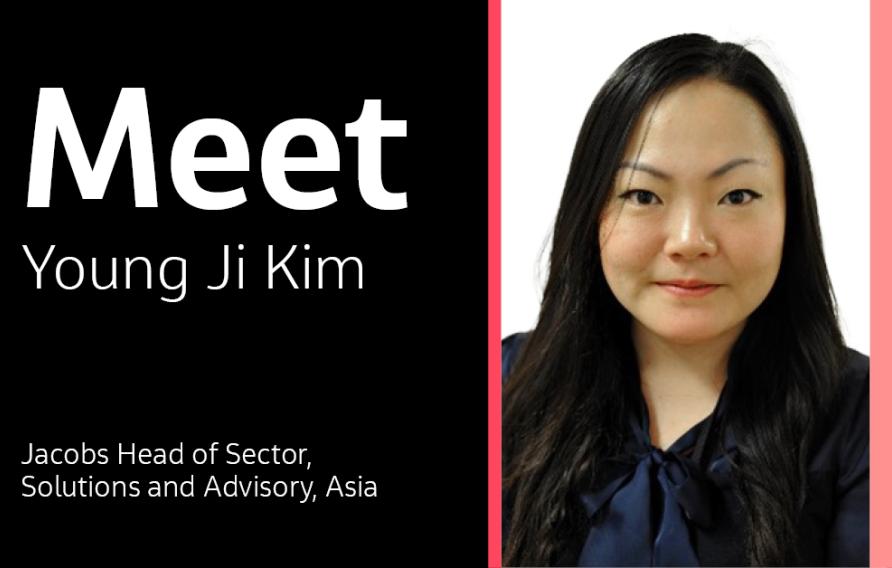 News
NewsUnlocking Value through Asset Management: Q&A with Young Ji Kim
In this interview, Head of Solutions and Advisory Asia at Jacobs Young Ji Kim emphasizes the challenges posed by aging critical infrastructure assets and the importance of adopting a holistic approach for sustainable infrastructure development in Asia.
-
 News
NewsNavigating Mobility, Infrastructure Challenges for Transport in Asia: A Q&A with Wesley Wong
In this interview, we caught up with Jacobs’ Head of Sector for Transport and Infrastructure Asia Wesley Wong on the evolution of the transport sector, emerging trends and technologies that will continue to accelerate the industry's revolution and how we’re helping clients navigate mobility and infrastructure challenges in the region.
-
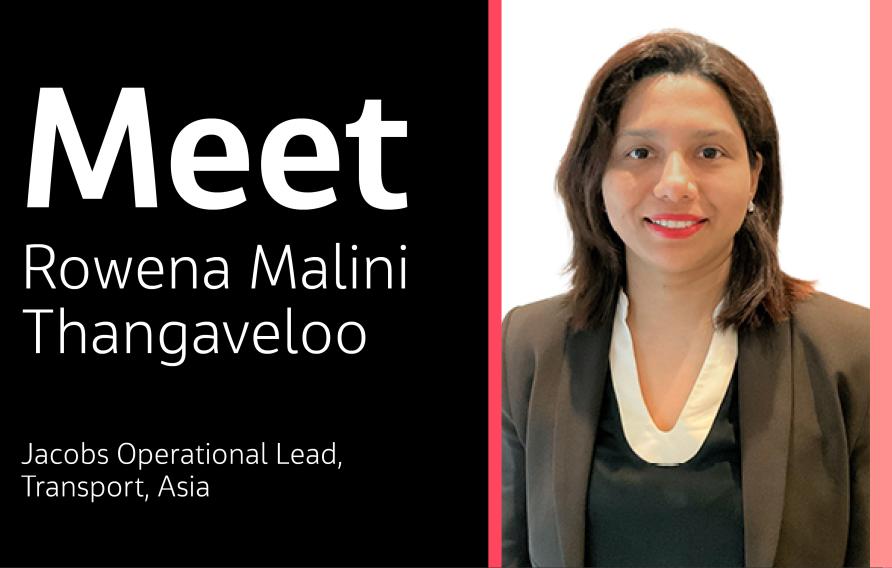 News
NewsRevolutionizing Transport: A Q&A with Rowena Malini Thangaveloo
We speak to Jacobs’ Operational Lead for Transport in Asia, Rowena Malini Thangaveloo, as she reflects on her journey at #OurJacobs and sheds light on some of the cutting-edge advancements that have the potential to reshape the future of the industry.
-
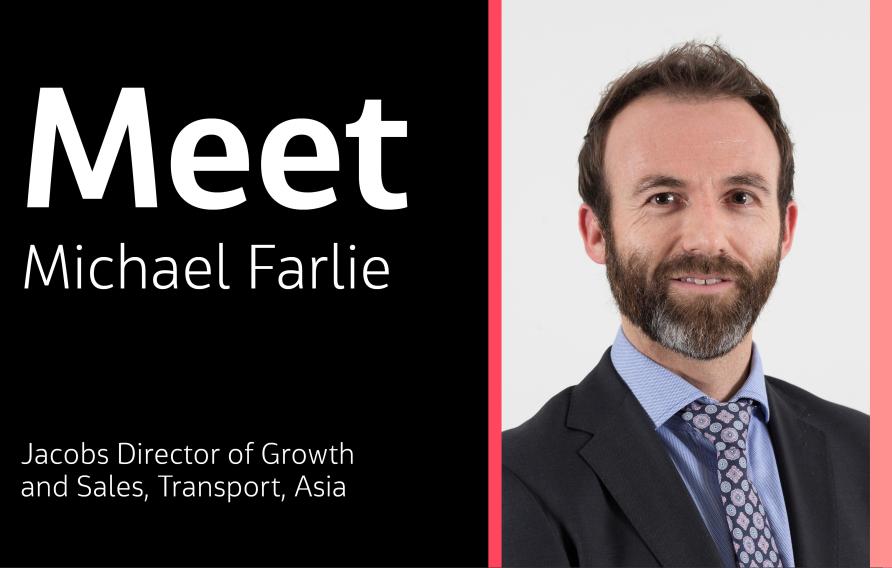 News
NewsShaping the Future of Transportation in Asia: A Q&A with Michael Farlie
Our director of growth and sales for transport, Asia, unpacks the role of resilient and inclusive transport infrastructure, including rail, in accelerating transformation in the region.
-
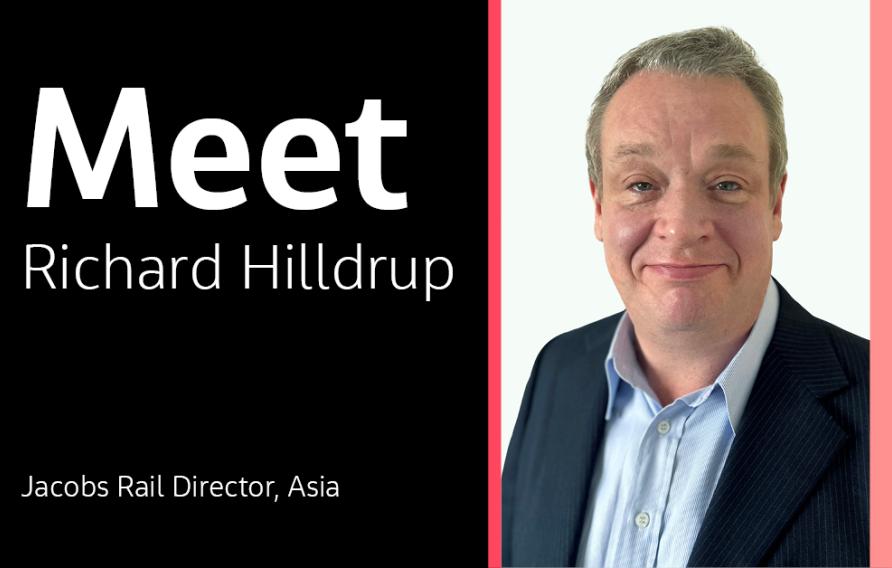 News
NewsExploring the Rail Industry’s Remarkable Transformation: A Q&A with Richard Hilldrup
We sat down with Jacobs’ Rail Director, Asia Richard Hilldrup, who takes us through his career journey at Jacobs and shares his thoughts on the remarkable transformation of the rail industry, some of the projects he is working on, and what excites him the most about the future of the ever-evolving sector.














































